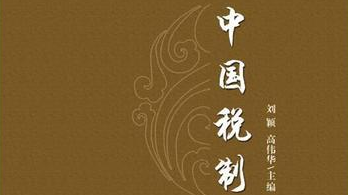
当前课程知识点:心理学之旅 > 第6章 记忆 > 第22讲 转瞬即逝—短时记忆和感觉记忆 > 第22讲 转瞬即逝—短时记忆和感觉记忆
曾经发生过这样的案例
There have been a case in which
有人头部被撞伤以后
someone was hit
只记得以前发生的事
and he can only remember what happened before
但不记得撞击前几分钟内的事情
but can’t remember that within a few minutes before the hit
心理学家就认为
Psychologists believe that
这说明对撞击前几分钟的记忆
this shows that the memory minutes before the impact
跟以前的记忆是不一样的
is different from the previous memory
这叫作记忆分离
This is called memory separation
这种现象说明 存在不同性质的记忆
which means that there are different kinds of memories
平时我们所讲的记忆
The memory we usually talk about
主要是长时记忆
is mainly long-term memory
在信息加工认知心理学出现以后
After the emergence of cognitive psychology in information processing
逐渐发现存在一种
psychologists gradually found that there is a memory
不同于长时记忆的记忆
different from long-term memory
这种记忆只能保持5秒到1分钟
This kind of memory can only be maintained for 5 seconds to 1 minute
叫作短时记忆
that is short-term memory
有的心理学家又把短时记忆叫作
Some psychologists also call short-term memory as
电话号码记忆
phone number memory
因为有时我们需要暂时记住一个电话号码
because sometimes we need to temporarily remember a phone number
等我们拨完电话后
and when we dial the phone
马上就忘了
we will forget it immediately
这就是短时记忆
This is short-term memory
短时记忆在一定时间内是鲜活的
Short-term memory is alive in a certain period of time
记忆效果很好
and the memory effect is very good
但过了这些时间就忘了
but after the period, the content will be forgotten
记忆中的系列位置效应
The serial position effect in memory
反映了短时记忆的特点
reflects the characteristics of short-term memory
如果按一定顺序和时间间隔
If a series of words are presented to the subjects
向被试呈现一系列单词
in a certain order and time interval
然后立即让被试
and then they are immediately asked to
以自己喜欢的顺序回忆这些单词
recall these words in the order they like
结果发现
the results show that
首先呈现的和最后呈现的单词回忆效果最好
the subjects recall the first words and the last words the most accurately
中间的比较差
and the middle ones are relatively poorly
这就是系列位置效应
which is the series position effect
最早的内容回忆效果好
The earliest content recall effect is good
这叫首因效应
which is called primacy effect
最后的内容回忆也很好
The last content recall is also good
叫作近因效应
which is called recency effect
心理学家认为
Psychologists believe that
近因效应的实质就是
the essence of recency effect is that
最后几个单词还保存在短时记忆中
the last few words are still stored in short-term memory
因而是鲜活的 记忆效果就很好
so they are fresh, and the memory effect is very good
这种记忆不同于长时记忆
which is different from long-term memory
从20世纪七八十年代以来
Since the 1970s and 1980s
巴德利等人认为
Baddeley and others believe that
应该用工作记忆
the concept of short-term memory should be
来替代短时记忆这个概念
replaced by working memory
他们认为 工作记忆就像一个工作台
They think that working memory is like a workbench
这里既要暂时保存一些信息
where we not only temporarily store some information
又要在这里对信息进行加工
but also process information
工作记忆的概念更有利于
The concept of working memory is more conducive for us
理解人们的信息加工过程
to understanding the process of information processing
短时记忆的编码形式有视觉编码
The encoding form of short-term memory is visual encoding
但主要以听觉编码为主
but mainly auditory encoding
比如 心理学家以视觉方式呈现若干辅音字母
For example, psychologists present a number of consonant letters in a visual way
要求被试以严格的顺序回忆
and ask the subjects to recall them in a strict order
结果发现
The results show that
发音相似的字母之间
the letters with similar pronunciation
如B和V容易发生混淆
such as B and V, are easily confused
而形状相似的字母之间
while the letters with similar shape
如E和F则很少发生混淆
such as E and F, are rarely confused
这说明 短时记忆是以听觉编码为主的
This shows that short-term memory is mainly auditory encoding
在短时记忆的编码阶段
In the encoding stage of short-term memory
如果我们处于觉醒或兴奋的状态
if we are awake or excited
编码的效果就会更好
the encoding effect will be better
另外 编码过程中
in addition, in the encoding process
如果对信息加工的程度更深
if the information processing is deeper
编码效果也会更好
the encoding effect will be better
1956年 米勒发表了一项研究
In 1956, Miller published a study
就是《神奇的数字7±2:
called The Magical Number Seven, Plus or Minus Two:
我们加工信息的能力的某些限制》
Some Limits on Our Capacity for Processing Information
这个题目非常符合米勒活泼 俏皮的性格
This title is very consistent with Miller's lively and playful character
让米勒感到非常神秘和纠缠不清的是
To Miller's great mystery and confusion
许多实验显示
many experiments show that
人们可以在短时间内记住项目的数量是7±2个
people can remember 7 ± 2 items in a short time
也就是5-9个
that is 5-9 items
他在实验中
In the experiment
使用了所谓全部报告法
he used the so-called whole report procedure
也就是同时呈现若干数字或英文字母
that is, to present several numbers or English letters at the same time
要求被试把能记住的信息全部报告出来
and asked the subjects to report all the information they could remember
我们可以试着记一下下面的数字
Let's try to memorize the following numbers
你能记住这些数字吗
Can you remember?
米勒认为
According to Miller
我们大概能记住7±2个 也就是5-9个
we can probably remember 7 ± 2, that is 5-9
我们再记一下下面的字母
Let's memorize the following letters again
这是16个字母
Here are 16 letters
你能记住吗
Can you remember them?
虽然有16个字母
There are 16 letters
但我想记住它们可能不难
but I think it may not be difficult to remember them
为什么呢
Why?
因为你已经把这些字母
Because you've combined these letters
组合成了remember和umbrella这两个单词
into two words, remember and umbrella
也可以认为是2个组合
or two groups
所以很容易记住
So it’s easy
因为米勒所说的短时记忆容量为7±2
In fact, Miller's short-term memory capacity is 7 ± 2
并不是7个最小的单位 而是7个组块
not seven smallest units, but seven chunks
所谓组块
The so-called chunking
就是把若干较小单位
refers to the information processing process in which a number of smaller units
联合而成熟悉的较大的单位的信息加工过程
are combined into a familiar and larger unit
这种加工所组成的单位也叫组块
The unit formed by this processing is called chunk
但后来更多研究认为
But later more studies suggested that
其实我们能记住的大约只有4-5个组块
in fact, we can only remember about 4-5 chunk
尽管短时记忆的容量十分有限
Although the capacity of short-term memory is very limited
但我们利用自己的经验
we can use our own experience
把我们需要记住的信息
to combine the information we need to remember
组合成若干我们所熟悉的组块
into some familiar chunks
就能大大扩充我们的记忆容量
which can greatly expand our memory capacity
怎样促进短时记忆的存储呢
How to promote the storage of short-term memory?
心理学家普遍认为
Psychologists generally believe that
复述是有效的方法
rehearsal is an effective method
纯粹机械的复述是可以促进短时记忆存储的
Pure mechanical rehearsal can promote short-term memory storage
如果我们分析这些信息
If we analyze these information
把信息与我们的经验建立联系
and link them with our experience
就更有利于信息的存储
it will be more conducive to information storage
短时记忆的遗忘速度很快
The forgetting speed of short-term memory is very fast
如果不复述
If we don't retell it
从第三秒就开始遗忘
we start to forget it in the third second
6秒时 已经遗忘了接近一半
At 6 seconds, we have forgotten nearly half of it
延长到18秒时 已经遗忘了90%左右
Within 18 seconds, we have forgotten about 90%
前面我们讲过
As we mentioned earlier
米勒在研究短时记忆容量时
when studying short-term memory capacity
采用的是全部报告法
Miller used the whole report method
也就是要求被试
that was to say, subjects were required
把能记住的信息全部报告出来
to report all the information they could remember
但是斯伯林认为
But Sperling thought that
我们能记住的项目很可能多于4-5个组块
we probably can memorize more than 4-5 items
之所以只能记住大约4-5个
The reason why we can only memorize about 4-5 items
可能是因为给被试
is that there are too many items
同时呈现的项目太多
presented to the subjects at the same time
被试还没有来得及报告完
The subjects haven't finished the report yet
刚刚记住的某些信息已经遗忘了
and some information just memorized has been forgotten
所以他设计了局部报告法
So he designed the partial report procedure
他给被试呈现12个英文字母
He presented the subjects with 12 English letters
每行4个 一共3行
four in each line, three lines in total
呈现时间为50毫秒
and the presentation time was 50ms
每行字母都和一种声音相联系
Each line of letters was associated with a sound
比如第一行用高音
such as the first line with high pitch sound
第二行用中音
the second line with middle pitch sound
第三行用低音
and the third line with low pitch sound
实验中
In the experiment
先呈现12个英文字母
12 English letters were presented first
然后呈现声音提示
followed by a sound
要求被试根据声音信号
The subjects were asked to report the corresponding line of letters
报告出声音所对应的那行字母
according to the sound signal
由于声音提示在字母出现之后
Since the sound appeared after the letters
所以被试不可能预先知道要报告哪一行
it was impossible for the subjects to know which line to report in advance
所以他们必须全部记住
so they must remember all of them
然后再根据提示进行局部报告
and then report part of the items according to the clues
结果发现
The results showed that
被试能报告的项目平均为9个
the average number of items that can be reported is 9
比全部报告法的容量多了一倍
which is twice the capacity of the whole report method
所以斯伯林认为
So, according to Sperling
存在一种不同于短时记忆的记忆
there is a kind of memory different from short-term memory
叫感觉记忆
which is called sensory memory
也就是
In other words
当客观刺激停止作用以后
when the objective stimulus stops
感觉信息在一个极短的时间内被保存下来
the sensory information is stored in a very short time
这种记忆叫感觉记忆
which is called sensory memor
又叫感觉登记或感觉贮存
also called sensory registration or sensory storage
它的容量大于短时记忆
Its capacity is larger than that of short-term memory
但保持的时间非常短暂
but the maintaining time is very short
只有0.5秒左右
only about 0.5 seconds
心理学家发现
Psychologists have found that
除了视觉通道有感觉记忆以外
in addition to visual channels
听觉通道也有感觉记忆
auditory channels also have sensory memory
听觉通道的感觉记忆容量只有5个左右
The sensory memory capacity of auditory channel is only about 5
但保持的时间略长
but the maintaining time is a little longer
可以达到4秒
which is about 4 seconds
我们已经介绍了感觉记忆
We have talked about sensory memory
短时记忆和长时记忆
short-term memory and long-term memory
现在我们回顾这些内容
Now let's review these and talk about the relationship
并看一下三种记忆之间的关系
between the three kinds of memories
外部的信息首先进入感觉记忆
The external information first enters the sensory memory
感觉记忆容量较大 大约9个单位
which has a large capacity of about 9 units
但保持的时间较短 只有0.5-5秒
but the maintaining time is short, only 0.5-5 seconds
如果感觉记忆的信息没有被注意
if the information of the sensory memory is not paid attention
信息就消失了
the information disappears
如果得到注意 就进入短时记忆
if it is paid attention, it enters the short-term memory
短时记忆的容量较小
The capacity of short-term memory is small
大约有4-5个组块
about 4-5 chunks
但保持的时间较长
but the maintaining time is relatively longer
大概是几秒到2分钟
about a few seconds to 2 minute
主要以听觉方式编码
mainly encoded in the form of hearing
短时记忆的信息如果没有复述
if the information of short-term memory is not rehearsed
很快就遗忘了
it will be forgotten soon
如果经过复述
if it is rehearse
就会转入长时记忆
it will be transferred to long-term memory
长时记忆的信息
The information in long-term memory
来自短时记忆的加工
comes from the processing of short-term memory
也可能由于印象深刻而一次性获得
or it can be acquired at one time because of deep impression
容量没有限制
with unlimited capacity
保持的时间从几分钟到终身
and the maintaining time is from a few minutes to a lifetime
长时记忆的信息如果没有适当的提取线索
If there is no proper retrieval clue for the long-term memory information
也会产生遗忘
it will also be forgotten
如果因为当前工作的需要
If it is necessary for the current work
也可以把长时记忆中的信息
the information in long-term memory
提取到短时记忆中进行加工
can also be retrieved into short-term memory for processing
下次课我们将进入第7章
Next time, we will enter Chapter 7
语言与认知
language and cognition
首先将会讨论的问题是
The first question to be discussed
动物到底有没有语言
is whether animals have language or not
下次再见
See you next time
-第2讲 理性之光—心理学是一门科学
-第3讲 寻找事实—心理学的研究方法
-第1章 作业
-第4讲 捷足先登—冯特创立心理学
-第5讲 心灵深处—弗洛伊德的精神分析理论
-第6讲 横空出世—华生与行为主义
-第7讲 融合与发展—心理学的新趋势
-第2章 作业
-第8讲 认知的第一步—感觉及其规律
-第9讲 获取信息—感觉的功能
-第10讲 超越元素—知觉的特性
-第11讲 感知三维世界—深度知觉
-第3章 作业
-第12讲 解决信息混乱—意识的功能
-第13讲 并不平静—睡眠
-第14讲 异常状态—梦、催眠与冥想
-第4章 作业
-第15讲 行为的变化—什么是学习?
-第16讲 建立联结—经典条件作用
-第17讲 行为的塑造—操作条件作用
-第18讲 不必参与的学习—观察学习
-第5章 作业
-第19讲 经验的积累—什么是记忆?
-第20讲 永不消逝的信息—长时记忆
-第21讲 非故意的谎言—记忆重构
-第22讲 转瞬即逝—短时记忆和感觉记忆
-第6章 作业
-第23讲 人类的荣耀—语言
-第24讲 策略与定式—问题解决
-第25讲 并非总是理性—推理与判断
-第7章 作业
-第26讲 行为的动力—动机及其来源
-第27讲 吃还是不吃?—饮食的生理与心理
-第28讲 追求成功的动力—成就动机
-第8章 作业
-第29讲 生命的色彩—情绪及其功能
-第30讲 生命色彩的解读—情绪理论
-第31讲 情绪双刃剑—压力
-第32讲 改变自己—压力应对
-第33讲 创造灿烂人生—幸福有方法
-第9章 作业
-第34讲 你有多聪明?—智力及其测量
-第35讲 因素及其超越—智力理论
-第36讲 遗传、教育、文化—智力的族群差异
-第10章 作业
-第37讲 千人千面—人格的概念和特征
-第38讲 描述差异—类型说与特质说
-第39讲 了解人格—人格测验.
-第40讲 膨胀的自我—自尊运动
-第11章 作业
-期末考试


